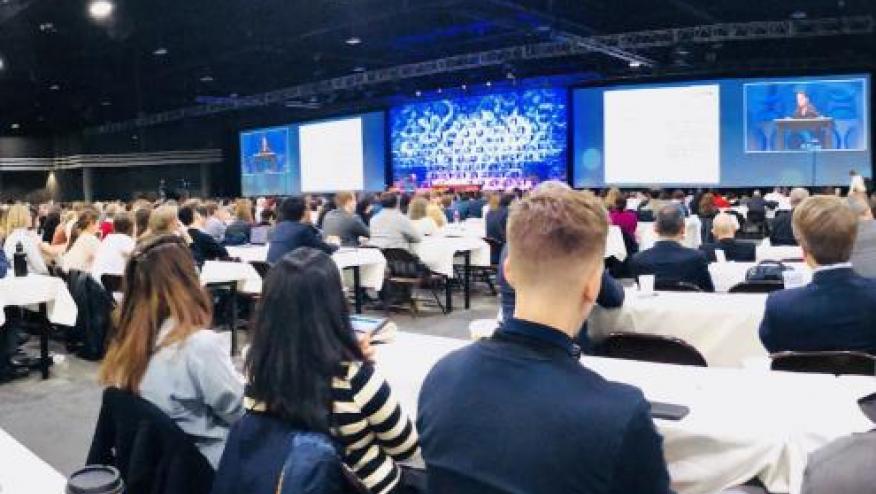EULAR 2021 – Day 2 Report Save

During Day 2 there were great sessions devoted to RA, spondylarthritis, fatigue and more. Here are some of my highlights from Day 2.
- Elderly Can Safety Receive Biologics and JAKs: OP0116 -Strangfeld and coworkers looked at the safety or infectious risks when biologics or JAK inhibitors (JAKi) are used in the elderly. Often the elderly (>70 yrs.) are not given biologics and advanced therapies, presumably because of their comorbidities, cost issues and the fact that age itself is a risk factor for serious infectious events (SIE). They analyzed the German RABBIT (RA) registry (2001-2020) that includes RA patients starting DMARDs, biologics or JAKi’s. This included 2274 elderly RA patients, and 425 elderly patients developed 616 SIE. Elderly patients receiving biologics had a longer disease duration and more disease activity than those on conventional DMARDs. A range of 62-73% of patients had 3 or more comorbidities. While elderly RA patients had more SIE (6.6 SIE per 100 PY) than non-elderly RA; there was no difference in SIE rates based on therapy when comparing those elderly treated with DMARDs, TNFi, RTX, IL-6 inhibitors, ABA or JAKi (Hazard Ratios ~0.9; nonsignificant). However, factors that did raise SIE risk included comorbidities and high disease activity more so than glucocorticoids.
- Spacing TNF Inhibitors in SpA – Far out! OP0138 – Lukas presented data on the feasibility of TNF inhibitor (TNFi) tapering in spondylarthritis (SpA) patients who are in stable low disease activity (BASDAI < 4 for >60 mos.). This was a noninferiority trial with a 12 mos. endpoint. A total of 398 patients were enrolled and 91. 5% completed the trial. Overall, they found that 83% were successful at tapering at 1 year. The low disease activity state was maintained in 91.5% of those on continued therapy and 88% of those who spaced out their TNFi (noninferior). Adverse events were not described. ASDAS remission rates were not calculated. Lastly, this was not an imaging trial, so the osteoarticular consequences of longer interval therapy is unknown.
- Seropositive RA Shows Better Abatacept Retention: OP0180. The ASCORE trial was a prospective study of abatacept (ABA) in RA patients. A total of 1748 EU patients were enrolled and followed for 2 years. Patients who were double positive (RF+/CCP+) had better CDAI and DAS28 outcomes than double negative (RF-/CCP-) patients. Importantly, double positives had better ABA drug retention over time, such that the 2-year drug survival of ABA was better in double positive compared to double negative patients (50% vs 37%). This effect was most pronounced in those receiving first line therapy and less so in those who were biologic failures.










If you are a health practitioner, you may Login/Register to comment.
Due to the nature of these comment forums, only health practitioners are allowed to comment at this time.